The camu-camu berry is not a mainstay in most grocery stores. Also known as Myrciaria dubia, the species is native to the Amazon, and it’s similar to a cherry but with a more sour taste. It’s also regarded as a superfood, which has led to it appearing in supplement and powder form in health food stores. And for good reason. The camu-camu berry is full of powerful nutrients that may provide many health benefits.
Excellent Source of Vitamin C
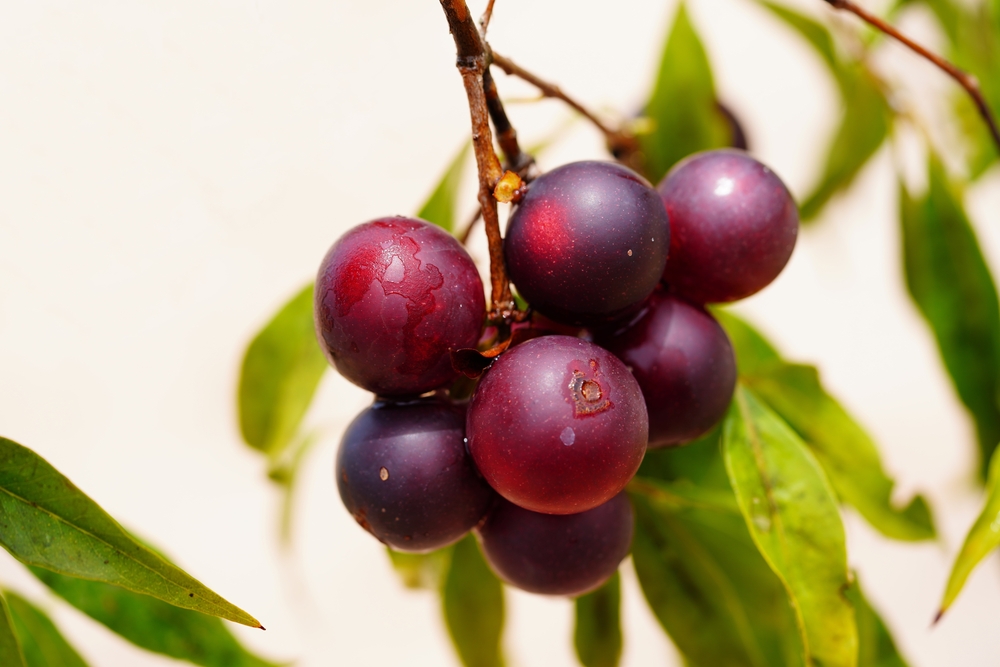
The camu-camu berry is best known for being high in vitamin C, with research saying its content ranges from 877 to 3,133 mg per 100 grams. Compare that to 100 grams of raw oranges, which has only 45 mg of vitamin C, according to the USDA Food Data Central. Vitamin C is important for many bodily functions, including the immune system and the formation of collagen that supports the skin, bones, and muscles.
Contains Powerful Antioxidants
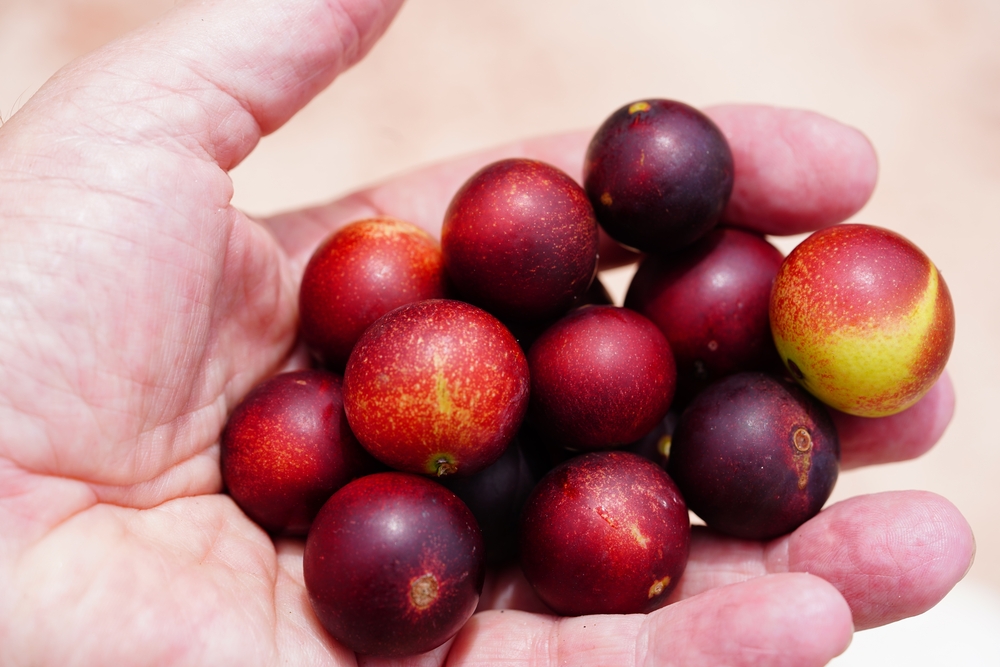
Camu-camu berries contain compounds called antioxidants that help combat free radicals in the body and reduce oxidative stress. Free radicals cause cellular damage that increases the risk of heart disease, diabetes, cancer, and other conditions. Vitamin C, also known as ascorbic acid, is one example of an antioxidant in this fruit, and others include anthocyanin compounds called cyanidin-3-glucoside and delphinidin-3-glucoside. A 2019 review shows that C3G can potentially support digestive health. Additionally, a 2022 animal study indicates that D3G may help improve heart health.
May Fight Inflammation
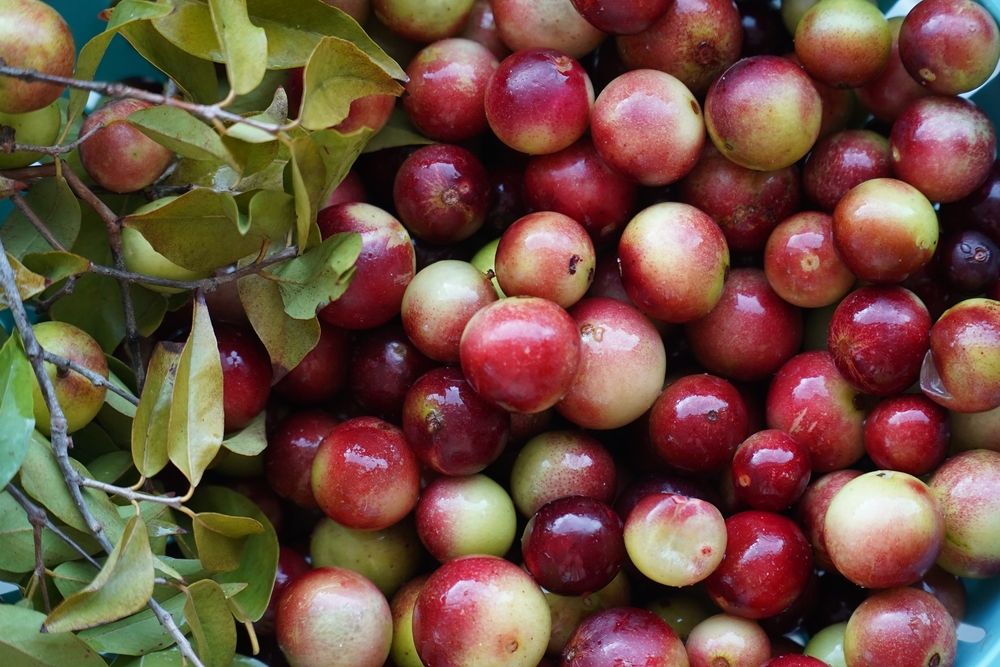
Compounds in the camu-camu berry can also provide anti-inflammatory benefits. This includes the aforementioned D3G, which a 2019 study indicates can inhibit inflammation. Additionally, camu-camus contains multiple polyphenols, which are chemicals known to reduce inflammation. Recent research indicates that polyphenols have the potential to combat inflammatory metabolic disorders, such as type 2 diabetes, obesity, and heart disease.
May Combat the Common Cold

Vitamin C famously supports the immune system, which makes it a popular supplement around the cold and flu season. This is despite the lack of evidence supporting the theory that vitamin C can treat cold symptoms. However, research does indicate that additional vitamin C might speed up the recovery process and alleviate the severity of the symptoms. Healthline recommends consuming whole foods instead of supplements to avoid over-consuming the vitamin.
Read More: Cabbage: A Nutrient-Packed Superfood, But Some People May Need to Avoid It
May Improve Blood Sugar Levels

A 2017 study investigated the effects of Brazilian native fruits on sugar levels. The trial involved 23 healthy subjects drinking these fruit juices after a high-carb meal. The results showed that the post-meal sugar spikes were notably reduced after consuming camu-camu berry juice compared to the control. Additionally, animal research showed that camu-camu supplementation helped lower fasting blood sugar and insulin resistance levels. More large-scale human studies are needed to confirm how camu-camu berries can help maintain healthy sugar levels, but the existing evidence is promising.
Help Heal After Smoking

One trial investigated the antioxidative and anti-inflammatory potential of the camu-camu berry. To do that, they gathered 20 male who were in “an accelerated oxidative stress state” due to their smoking habit. The participants took vitamin C tablets or drank camu-camu juice for a week, and the juice group showed reduced oxidative stress and inflammatory markers while the vitamin C group showed no change. Although this study is too small and short to make any practical conclusions, it indicates that the camu-camu may have beneficial antioxidants aside from vitamin C.
How to Get the Benefits of the Camu-Camu Berry
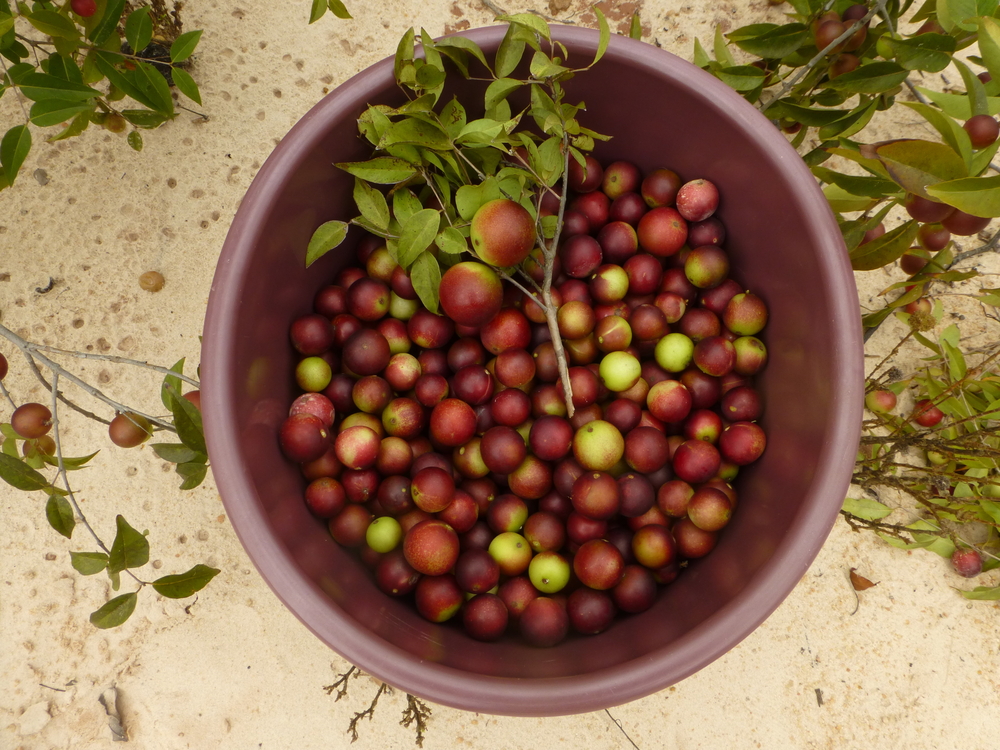
On its own, a camu-camu berry is very sour and acidic, so it’s typically sold in the form of sweetened juice, pulp, puree, extracts, supplements, and powder. The powder is especially popular because it’s easy to add to dishes that can mask the sour flavor. For example, it could be mixed into smoothies, oatmeal, yogurts, dips, cottage cheese, juice blends, and salad dressings.
A Word of Caution
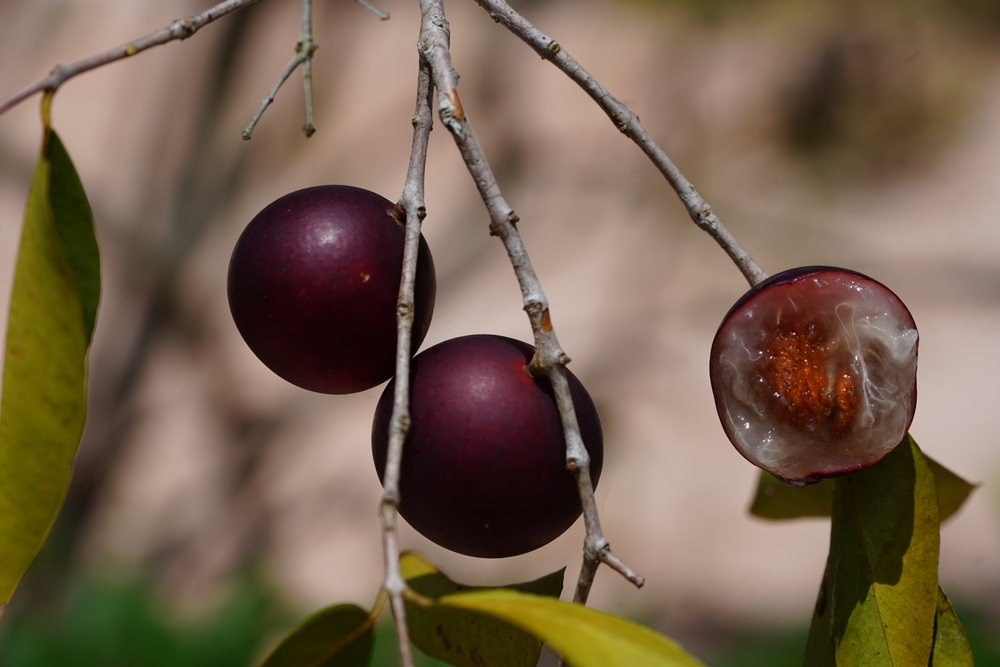
Like with all supplements, camu-camu comes with potential side effects. In this case, it’s due to the high vitamin C content, which becomes more concentrated in processed camu-camu products. However, excessive consumption of vitamin C can lead to digestive issues like nausea and diarrhea. Keep in mind, the FDA does not regulate supplements like it regulates prescription medications. That allows manufacturers to get away with false labeling, inaccurate ingredient lists, and exaggerated benefits. Therefore, look for products that are certified by third-party testers, and speak to a health professional before taking any supplements, especially if you are taking medications or are pregnant or breastfeeding.
Read More: Why ‘Old People Smell’ Happens and How One Superfood May Help Prevent It
